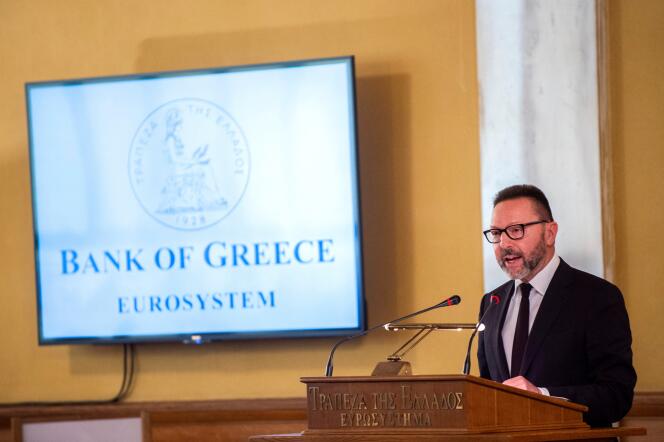YAnnis Stournaras, the governor of the Greek central bank, has a nice expression: “For Europe, Greece has been the midwife of History. » Understand: it is because of the Greek crisis that the European Union (EU), and in particular the euro zone, had to reform in depth. It is because the bankruptcy of this country of 10 million inhabitants was poorly managed by the European authorities that it was necessary to reinvent everything: a rescue fund for countries in distress was created (the European Stability Mechanism, MES), as well as a bank rescue fund (Single Resolution Fund, SRF), while the European Central Bank (ECB) – whose governing council meets very symbolically in Athens on October 26 – has become much more interventionist.
Mr. Stournaras, who was Minister of the Economy from 2012 to 2014, is the first to recognize this: “The initial fault of the crisis was that of the Greeks. » From 2002, when Greece joined the eurozone, the country was able to borrow at low interest rates, well below what they would have been in a separate currency. The government took the opportunity to spend blindly, until finding itself, in 2009, with a gigantic budget deficit of 15% of gross domestic product (GDP), not without initially wanting to disguise the accounts. “Unlike other countries, this was not a banking crisis, but entirely a public sector problem”continues Mr. Stournaras.
But to this initial crisis, the EU reacted with two profound errors, believes Georges Papaconstantinou, Minister of the Economy from 2009 to 2011. The first is to have allowed the fire to spread to other countries in the euro zone. : Ireland, Portugal, Spain, Cyprus… “Investors wanted a guarantee that Europe would not let a country default on its debthe explains. They hoped the ECB would act as lender of last resort and intervene in the markets by buying debt from countries in difficulty. » Jean-Claude Trichet, then president of the ECB, refused. “He told governments to do their job and put in place rescue mechanisms. »
Gigantic austerity
This inaction by the ECB panicked investors and amplified the crisis. Two years later, in July 2012, Mario Draghi, his successor at the head of the institution, drew conclusions. By announcing that he would act “whatever it costs” (“whatever it takes”) to save the euro, he de facto transformed the institution into a lender of last resort. “However, it is not certain that the same speech given by Trichet in 2010 would have worked”, moderates Mr. Papaconstantinou. In between, the EU had started to reform, and the ancestor of the ESM had been created.
You have 50.76% of this article left to read. The rest is reserved for subscribers.
